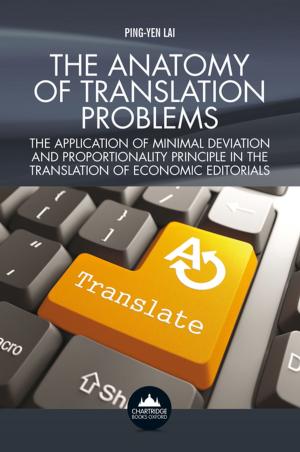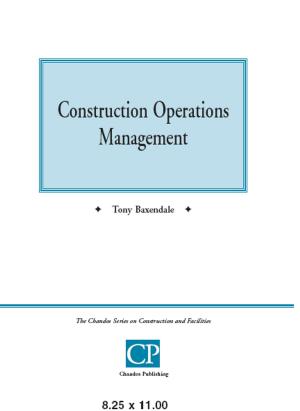| Author: | David Hickman | ISBN: | 9781909287181 |
| Publisher: | Chartridge Books Oxford | Publication: | October 14, 2012 |
| Imprint: | Chartridge Books Oxford | Language: | English |
| Author: | David Hickman |
| ISBN: | 9781909287181 |
| Publisher: | Chartridge Books Oxford |
| Publication: | October 14, 2012 |
| Imprint: | Chartridge Books Oxford |
| Language: | English |
Examines contracts in the construction industry in relation to the Private Finance Initiative (PFI), such as what distinguishes construction in a PFI environment from a traditional contract. The author analyses the key elements of the construction sub-contract and interface between contractor and operator. The author, David Hickman, is a Partner with a leading international law firm and has worked on many PFI projects. Contents: Construction issues on PFI projects: output specification, project company's solution, design and construction standards, warranties, government regulations, timescales, lifecycle costs, interface between construction/operational phase, design development, performance payment system. Flow down of risks to subcontracts: how risk is flowed down, termination risk, termination issues for the construction subcontractor, warranties, bonds and guarantees. Use and adaptation of standard forms for the construction subcontract: a standard form (JCT 81 or 98), preparation of the contract where a standard form is being adapted, bespoke contracts. Negotiating key elements of construction subcontract: scope of works, liability level, compensation events and relief events, extensions of time, liquidated damages, payments, variations, certification/completion, independent certifier. Collateral agreements. Interface between contractor/operator. Finance/funding: debt finance, subordinated debt, equity, bond finance, key funding issues, the financial model, banks and risk. Insurance: insurance and risk allocation, insurances required by the construction company, who effects these, levels and breadth of insurance, banks and insurance, authority issues, what the construction company must do. Post contract-construction phase problems: variations during construction, disputes, DRP at subcontract level, overruns/extensions of time. Future developments. Appendices: Treasury Taskforce Guidance.wordings. Sample risk matrix.
Examines contracts in the construction industry in relation to the Private Finance Initiative (PFI), such as what distinguishes construction in a PFI environment from a traditional contract. The author analyses the key elements of the construction sub-contract and interface between contractor and operator. The author, David Hickman, is a Partner with a leading international law firm and has worked on many PFI projects. Contents: Construction issues on PFI projects: output specification, project company's solution, design and construction standards, warranties, government regulations, timescales, lifecycle costs, interface between construction/operational phase, design development, performance payment system. Flow down of risks to subcontracts: how risk is flowed down, termination risk, termination issues for the construction subcontractor, warranties, bonds and guarantees. Use and adaptation of standard forms for the construction subcontract: a standard form (JCT 81 or 98), preparation of the contract where a standard form is being adapted, bespoke contracts. Negotiating key elements of construction subcontract: scope of works, liability level, compensation events and relief events, extensions of time, liquidated damages, payments, variations, certification/completion, independent certifier. Collateral agreements. Interface between contractor/operator. Finance/funding: debt finance, subordinated debt, equity, bond finance, key funding issues, the financial model, banks and risk. Insurance: insurance and risk allocation, insurances required by the construction company, who effects these, levels and breadth of insurance, banks and insurance, authority issues, what the construction company must do. Post contract-construction phase problems: variations during construction, disputes, DRP at subcontract level, overruns/extensions of time. Future developments. Appendices: Treasury Taskforce Guidance.wordings. Sample risk matrix.















